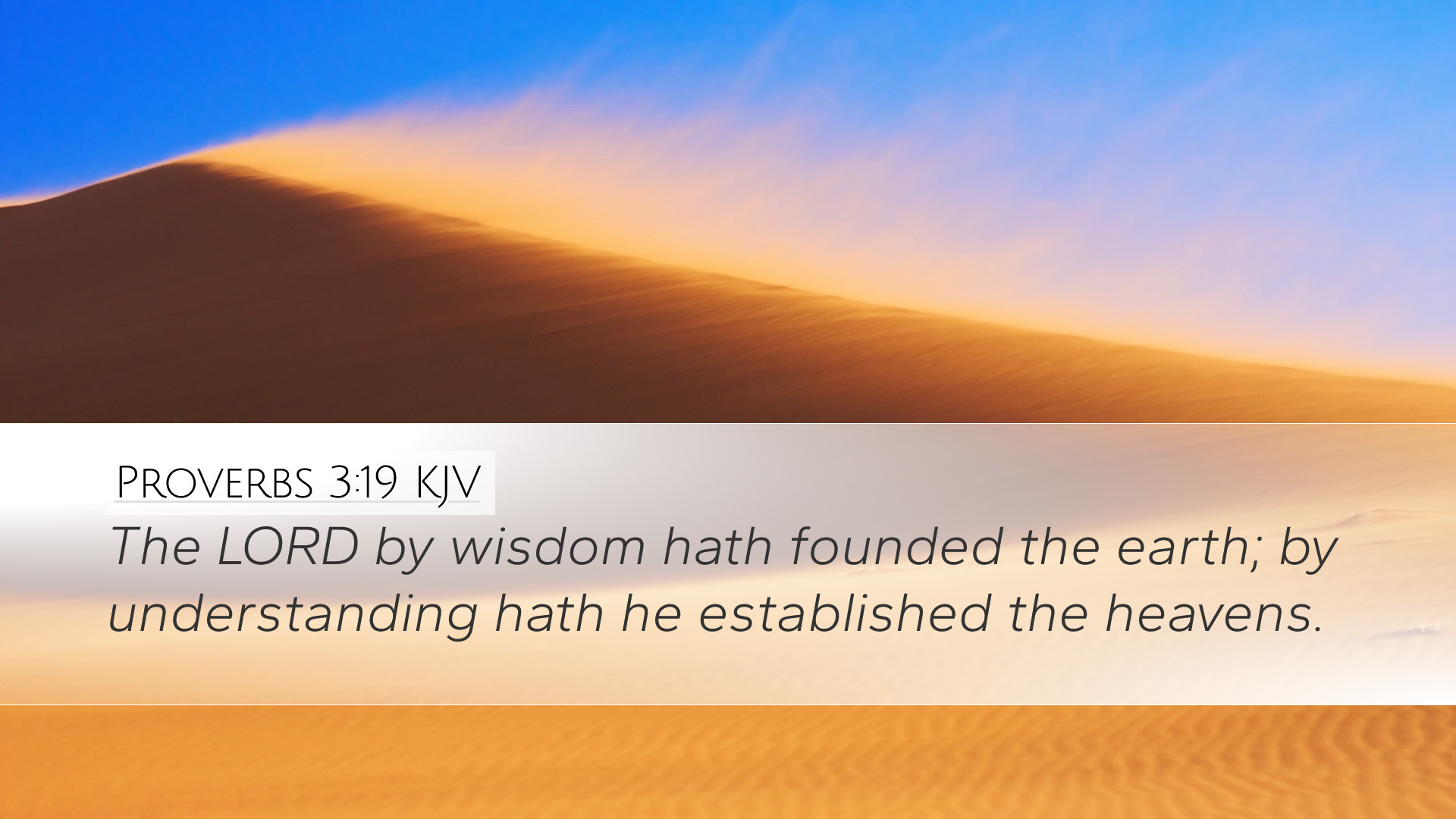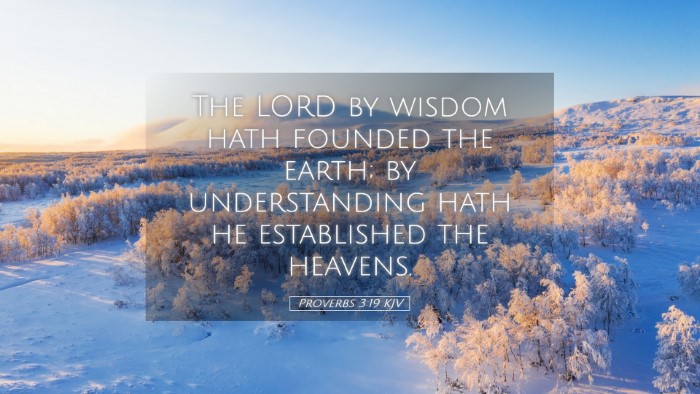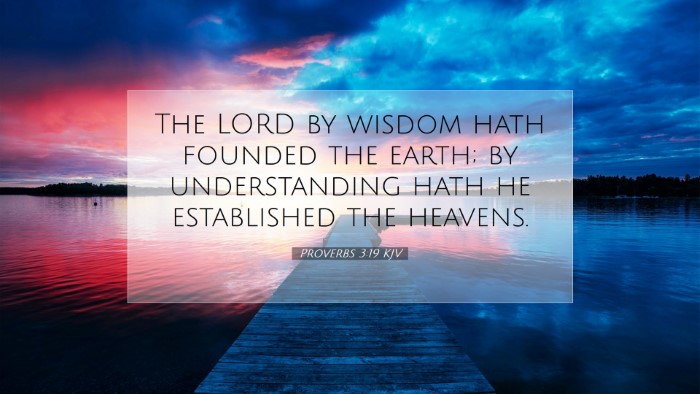Commentary on Proverbs 3:19
Verse Text: "The LORD by wisdom hath founded the earth; by understanding hath he established the heavens."
Introduction
Proverbs 3:19 is a profound verse that underlines the foundational role of divine wisdom in the creation and sustenance of the world. Drawing from classical public domain commentaries, this commentary seeks to unpack the meaning and implications of this scripture for pastors, students, theologians, and Bible scholars.
Divine Wisdom in Creation
In this verse, the “LORD” (Yahweh) is depicted as the architect of the universe, a theme prevalent in biblical literature (Genesis 1:1). The terminology of “wisdom” and “understanding” emphasizes the methodical and intentional nature of creation. Matthew Henry notes that wisdom is not merely an abstract quality but rather the very principle by which God executed the creation of the earth and heavens.
- Wisdom as a Foundational Principle: Wisdom is foundational to all that exists; it is not arbitrary or chaotic.
- Understanding as Establishing Order: Understanding indicates a deeper comprehension that brings stability and order to creation.
The Nature of Wisdom
Albert Barnes elaborates on the nature of wisdom, suggesting that it represents God’s competence, skillfulness, and insight into the workings of creation. The verse implies that this wisdom is intrinsic to God's nature, as Henry notes, “the wisdom that created the world is the same that governs it.”
- Attributes of Divine Wisdom:
- Omnipotence: God possesses all power to bring His wisdom to fruition.
- Omniscience: His understanding encompasses the entirety of existence, including the complexities of human life.
- The Church and Wisdom: The church is called to reflect this divine wisdom and understanding in its mission and witness to the world.
Theological Implications
The proclamation that the LORD used wisdom to found the earth prompts several important theological reflections:
- Creation vs. Evolution: This verse serves as a counter-narrative to purely materialistic views of the universe’s origin, which strip creation of purpose and order.
- The Sovereignty of God: The establishment of the heavens by understanding affirms God's sovereignty over creation, emphasizing His authority in all matters pertaining to life.
Practical Application for Life
This verse also carries significant existential implications for believers. By understanding the role of divine wisdom in creation, individuals may be encouraged to seek this same wisdom in their daily lives. Adam Clarke states that wisdom is not only a gift from God but also an imperative for human beings, who must pursue it diligently:
- Seeking Wisdom: Believers are exhorted to seek wisdom as a treasure (Proverbs 2:4), which will enable them to navigate the challenges of life.
- Living in Alignment with Divine Order: Understanding that the universe is established by God's order encourages believers to align their lives with divine principles.
Conclusion
Proverbs 3:19 beautifully illustrates the interplay between divine wisdom, creation, and human responsibility. As pastors and scholars seek to convey this message, it is crucial to highlight that wisdom is not just a mere intellectual pursuit but a transformative power that invites individuals into a relationship with the Creator.
In summary, this verse provides a foundation for understanding the cosmos and human experience in light of God's sovereign wisdom and deep understanding. By recognizing this truth, believers are empowered to engage with the world thoughtfully and faithfully.


